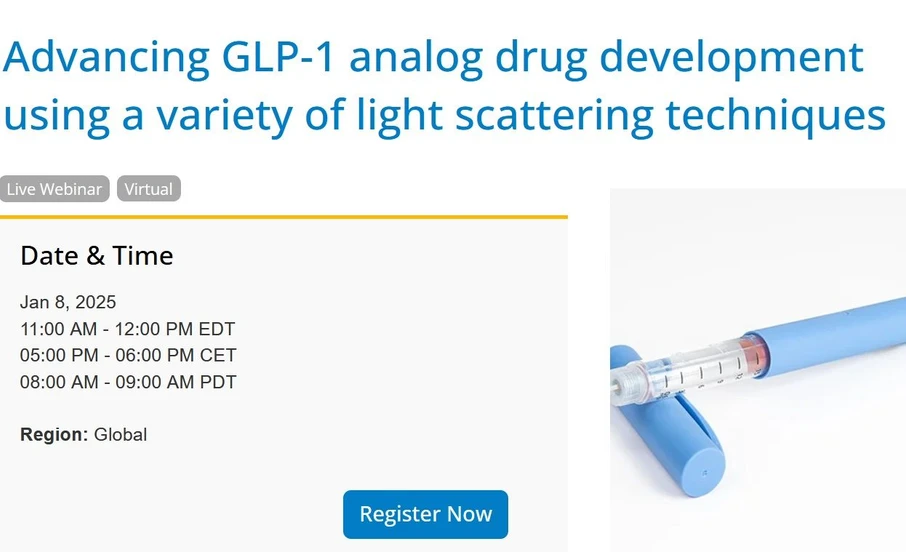Advancing GLP-1 analog drug development using a variety of light scattering techniques

Characterizing biological macromolecules used in therapeutics is both essential and complex. Among the key techniques for analyzing the properties and behaviors of biologics are multi-angle light scattering, dynamic light scattering and electrophoretic light scattering, which directly measure molar mass, size, stability, and interactions.
This webinar will focus on the basics of light scattering and its data analysis, as well as present case studies that highlight how light scattering can be utilized in GLP-1 analogs drug development. The discussion will include topics such as aggregation screening and in-depth characterization, colloidal and conformational stability, and accelerated stability screening.
Key Learning Objectives:
- Understanding GLP-1a: Learn about the biological functions and therapeutic importance of GLP-1 analogs in treating obesity and type-II diabetes.
- Analytical Techniques: Gain knowledge on advanced light scattering for characterizing peptide drugs in the detection of aggregates, oligomeric states and peak heterogeneity.
- Case Studies: Explore real-world applications of light scattering techniques in assessing the quality and stability of GLP-1a drugs.
- Transfer to your lab. Learn what columns and conditions are required for ideal results and conditions for your own studies.
Who Should Attend:
- Peptide Formulation Scientists and Analytical Chemists focused on peptide-based therapeutics, such as GLP-1, to evaluate stability and aggregation.
- R&D Scientists in peptide drug discovery and development, specializing in evaluating multivalent peptide interactions.
- Lab Managers looking to understand state-of-the-art instruments that enhance analytical capabilities.
Presenter: Xujun Zhang, Ph.D. (Waters | Wyatt Technology)
Xujun Zhang joined Wyatt Technology in 2019 and currently serves as a Senior Scientist on the Analytical Sciences team. He provides application support and training for customers across a broad array of fields and is responsible for advanced training for our field scientists and Wyatt representatives worldwide. He completed his Ph.D. in Materials Science and Engineering at Georgia Tech, with a focus on soft matter research and applications.
